News
Warren Buffett dumped stocks, built a $300 billion cash pile, and updated his death plan in 2024. Here are his 6 highlights.
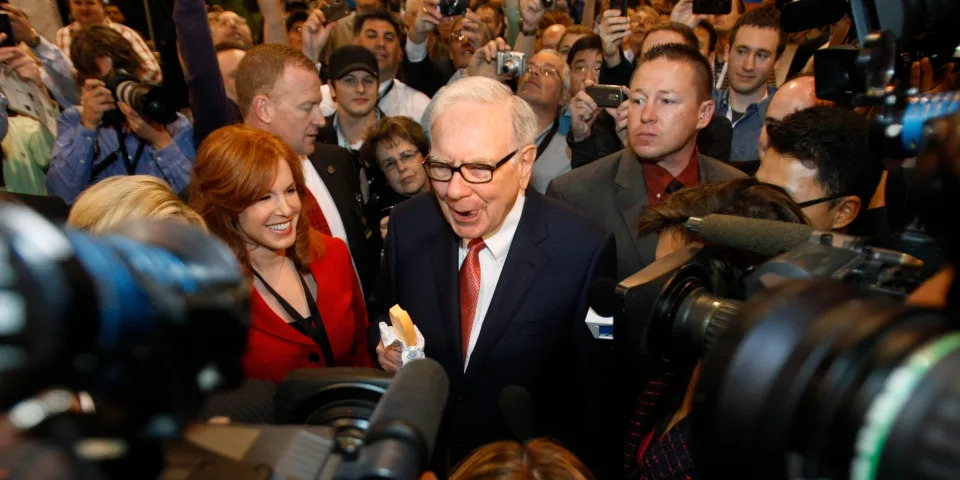
Warren Buffett had a year to remember in 2024 as he sold two of his favorite stocks, built his cash pile to more than $300 billion, and led Berkshire Hathaway to a $1 trillion market value for the first time.
The 94-year-old Berkshire CEO and legendary investor also paid credit to his late right-hand man, gifted more than $6 billion to good causes, and updated his plan to give away his fortune following his death.
Here are Buffett's 6 highlights of 2024:
1. Paying respects
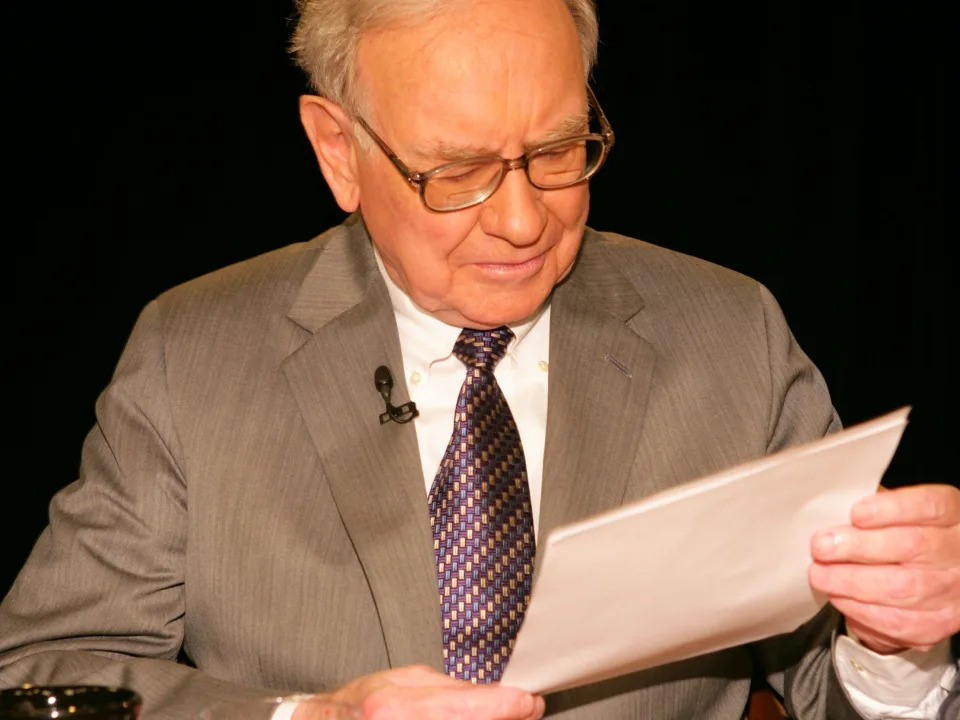
In his annual letter in February, Buffett paid tribute to Charlie Munger, his business partner and Berkshire's vice chairman for more than four decades, who died aged 99 in November 2023.
"Though I have long been in charge of the construction crew; Charlie should forever be credited with being the architect," Buffett wrote, calling himself the "general contractor" who carried out Munger's vision for Berkshire.
Buffett also dashed hopes for a transformative acquisition anytime soon. Berkshire's vast scale means only a few companies in the country could move the needle, he said, and all of them have been "endlessly picked over by us and others."
"All in all, we have no possibility of eye-popping performance."
The investor also called out a rise in "casino-like behavior" in markets and appeared to take aim at trading apps like Robinhood once again . "The casino now resides in many homes and daily tempts the occupants."
2. Pilgrimage to Omaha

Tens of thousands of Berkshire shareholders descended on Buffett's hometown in May to attend the company's annual meeting and watch the "Oracle of Omaha" hold court for several hours.
Buffett told the crowd he'd sold a chunk of his massive Apple stake in the first quarter . He also compared artificial intelligence to nuclear weapons, and took responsibility for a losing wager on Paramount.
The Berkshire boss said he regretted not listening to Munger and betting big on Costco decades ago. He also raised the alarm on the national debt and budget deficit, dismissed foreign threats to the dollar, and declared he could earn a 50% annual return on $1 million.
3. Stocks, cash, and buybacks
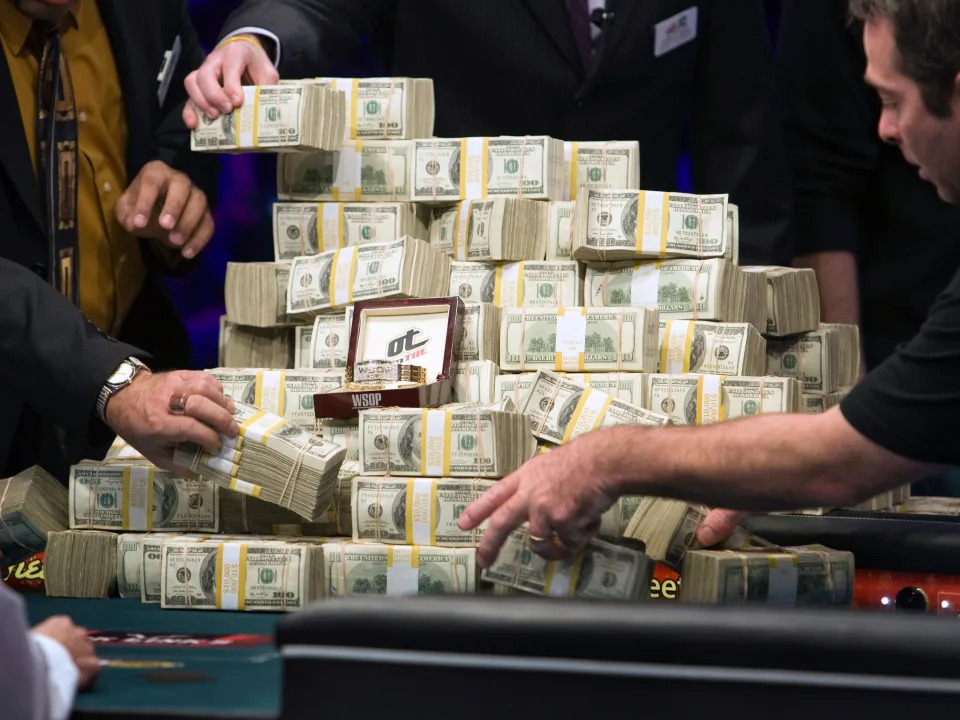
Buffett and his team sold $133 billion of stocks in the first nine months of 2024, and bought less than $6 billion worth. In comparison, they sold a net $24 billion of stocks in 2023, and purchased a net $34 billion of stocks in 2022.
They spent less than $3 billion on buybacks between January and September last year, with none in the third quarter, after spending nearly $70 billion on repurchases over the previous four years (almost $52 billion of that was in 2020 and 2021.)
Ramping up stock sales and curbing buybacks helped to nearly double Berkshire's cash pile in nine months from $168 billion to a record $325 billion (or $310 billion after subtracting almost $15 billion of payables for Treasury bill purchases in the third quarter).
Berkshire's cash pile now exceeds the total value of the company just over a decade ago, and accounted for a hefty 27% of its $1.15 trillion of assets at the end of September.
Buffett and his colleagues have said they're stacking cash because they're struggling to find bargains with valuations at historic highs, and they don't mind keeping money out of an ebullient stock market.
4. Selling sacred cows
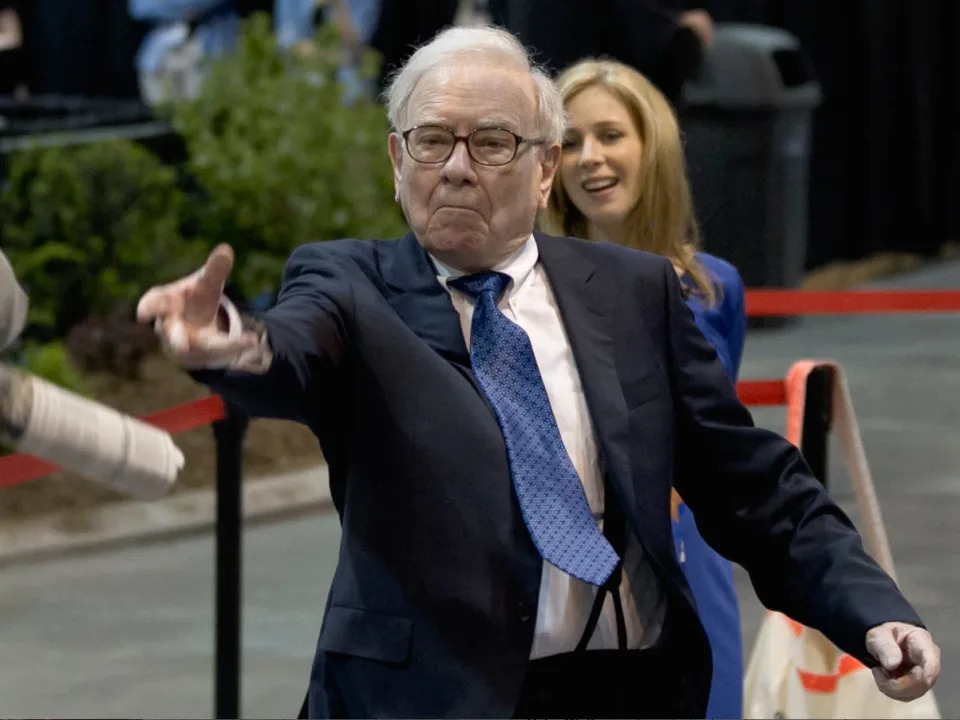
Buffett and his investment managers, Ted Weschler and Todd Combs, made several striking changes to Berkshire's stock portfolio last year.
They pared Apple , their largest position, by 67% in nine months, reducing its value from $174 billion to below $70 billion. The sharp reduction shocked many as Buffett had showered praise on the iPhone maker for years, hailing it as "probably the best business I know in the world" and one of Berkshire's "four giants."
Buffett and his deputies also cut Bank of America , their no. 2 position, by about 26% between mid-July and mid-October, collecting more than $10 billion of proceeds. The sales lowered their stake from above 13% to below 10%, freeing them from having to disclose changes to the holding within a couple days. Their stake only dropped in value from $35 billion to $32 billion between January and September because the bank's stock price rose by around a fifth during that period.
Berkshire also revealed a near-$7 billion stake in insurer Chubb in its first-quarter portfolio update, trimmed holdings such as Capital One in the second quarter , and bought nearly 4% of Domino's Pizza in the third quarter while cutting several smaller holdings.
5. Giving billions
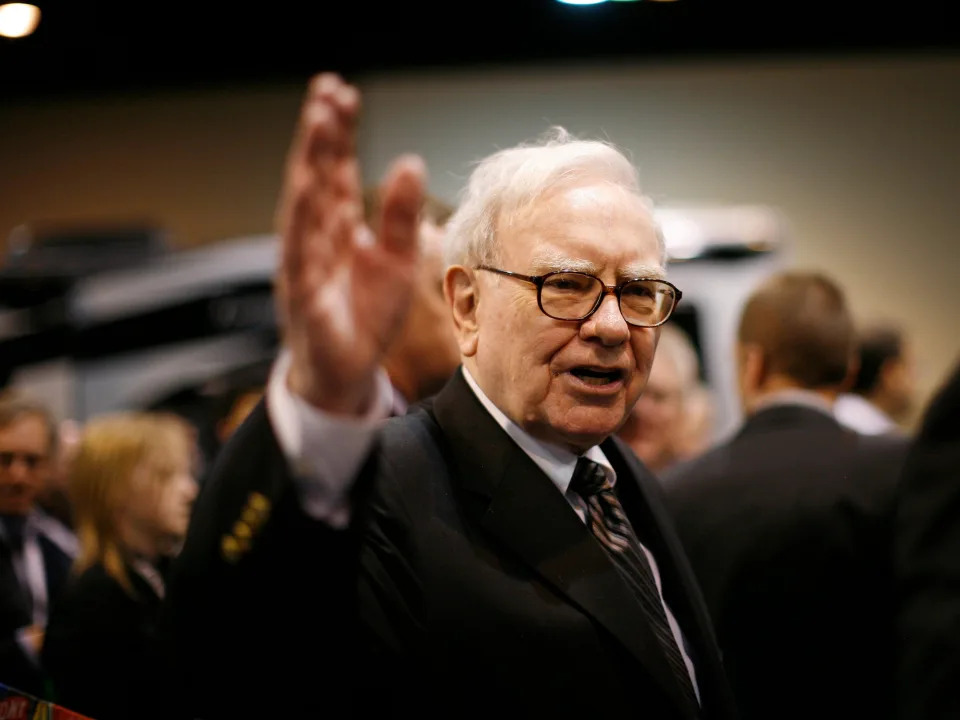
Buffett donated Berkshire shares worth $5.3 billion to the Bill & Melinda Gates Foundation and four of his family's foundations in June.
He said those gifts meant he'd now given $55 billion to the quintet over the previous 18 years, based on how much the Berkshire shares were worth at the time of giving.
Buffett divvied up a further $1.2 billion stock donation among the four family foundations in late November, continuing a Thanksgiving tradition he started in 2022.
The latest donations reduced his number of A shares to a little more than 206,000, meaning he's given away almost 57% of his shares since pledging 99% of them to good causes in 2006.
6. Estate planning
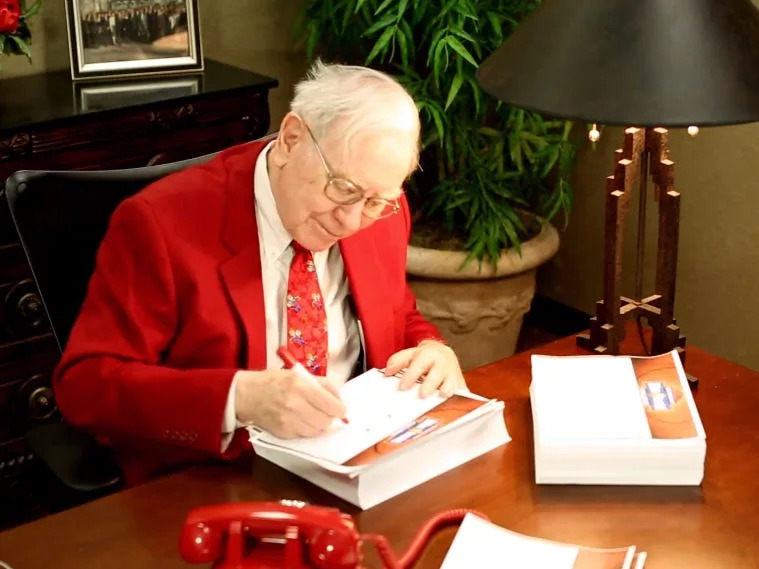
Buffett unexpectedly published a near-1,500 word letter to shareholders alongside the news of his Thanksgiving gift.
In it, he reiterated his desire to pass along his incredible wealth to "others who were given a very short straw at birth."
Buffett revealed earlier in the year that he planned to put almost his entire fortune in a trust, and task his three children with distributing it to worthy causes after he dies. But in his mini letter in November, he acknowledged that his kids are in their late 60s and early 70s and might die before they can fulfill his vision.
The investor said that risk had led him to designate three potential successor trustees to be "on the waitlist" just in case.
Buffett also took stock of the astounding scale of wealth in America, where more than a dozen people including him are personally worth in excess of $100 billion .
"It has been mind-blowing — beyond the imaginations of Ford, Carnegie, Morgan or even Rockefeller," he wrote. "Billions became the new millions."
Read the original article on Business Insider

